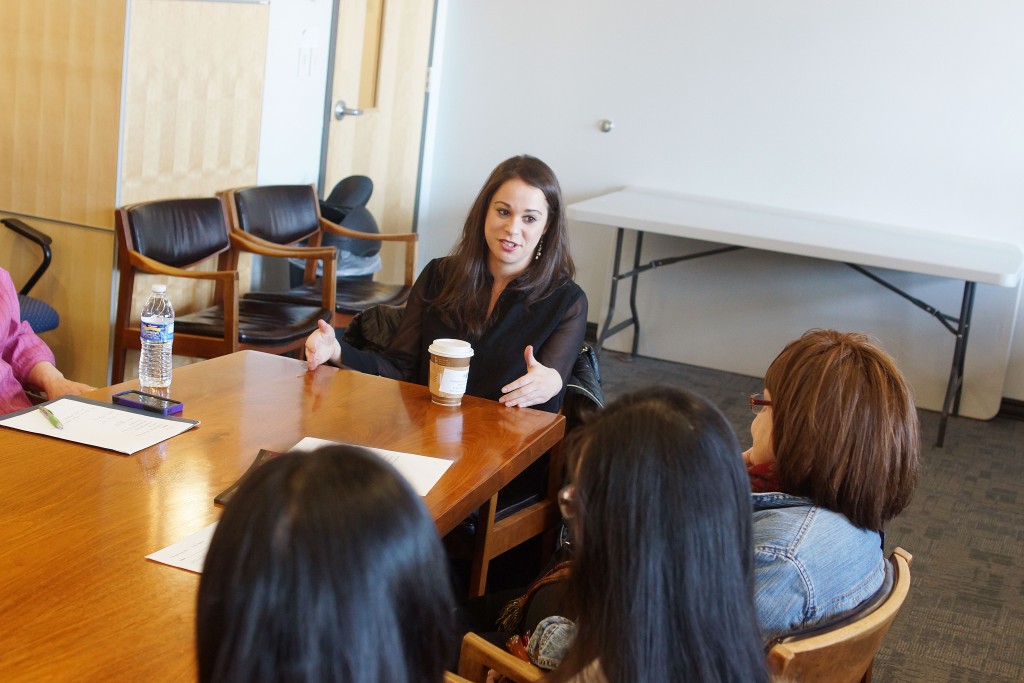
With their sights set on a career in the literary field, students gathered on Monday in Library North to talk with literary agent Erin Harris.
Maria Gillan, the head of Binghamton University’s creative writing program, invited Harris, an agent for Folio Literary Management, to speak. Harris worked in the publishing industry for 10 years at literary firms such as William Clark Associates and the Irene Skolnick Literary Agency prior to her current job at Folio. She has represented authors such as Daniel Levine, a New York Times Editors’ Choice award-winner for his book “Hyde,” and Carla Power, the National Book Award finalist for her book “If the Oceans Were Ink.”
Harris began her discussion by explaining her duties as an agent, which include identifying writing talent from hundreds of submissions received weekly and communicating between her clients and publishing houses.
“I would venture to say that the agent has stepped in and assumed the role [of a long-term editor],” Harris said. “While editors absolutely do still edit and put their mark and fingerprint on your book, [manuscripts] now need to be in such a polished state before they are submitted … agents are the ones with ink on their hands.”
Harris presented an insider’s look at the world of publishing, which she said few people understand the inner workings of. She began by explaining the manuscript submission process, and later described the complexities behind getting an author’s work published. She described her own difficulties in working her way up in the industry, while also shedding light on struggles aspiring authors face when trying to get an agent.
Harris’ authors often write plot-driven forms of literary fiction or young adult fiction. She chooses manuscripts based on whether they draw her into the narrative successfully, and is only able to represent one or two new books a year out of the thousands of submissions she receives.
Gillan, a talk coordinator, said she asked Harris to speak at BU to show students how an English degree can lead to job opportunities in the publishing industry.
“We’re bringing agents and editors here — it’s helped our students get published and it’s a way for our students to understand the business of writing and getting published,” Gillan said. “We’ve gotten a lot of students’ work published in journals that are prestigious; they’ve met editors of presses, they meet people like Erin who are agents … it’s a way of getting your foot in the door.”
Attendees like Katie Kravat, a senior majoring in philosophy, politics and law, said the event exposed the difficulties and rewards of working in the publishing industry.
“I thought Erin was extremely knowledgeable and had a lot of good information about the industry,” Kravat said. “So it was very useful to me to gauge whether this is something I want to do.”
Harris stressed that the most important aspects of the publishing industry are hard work and diligence. To be a successful agent, Harris said, most people devote years to internships and assistant jobs. Harris also said that writers should not submit their work until they have done everything they can to improve it.
“I hope students garner a better sense of the mechanics of publishing,” Harris said. “… I hope they also realized that publishing is a business, and not everyone gets published, and it’s a real privilege to be a working author. If one works hard enough and puts in the effort, it is possible to attain your dreams.”


